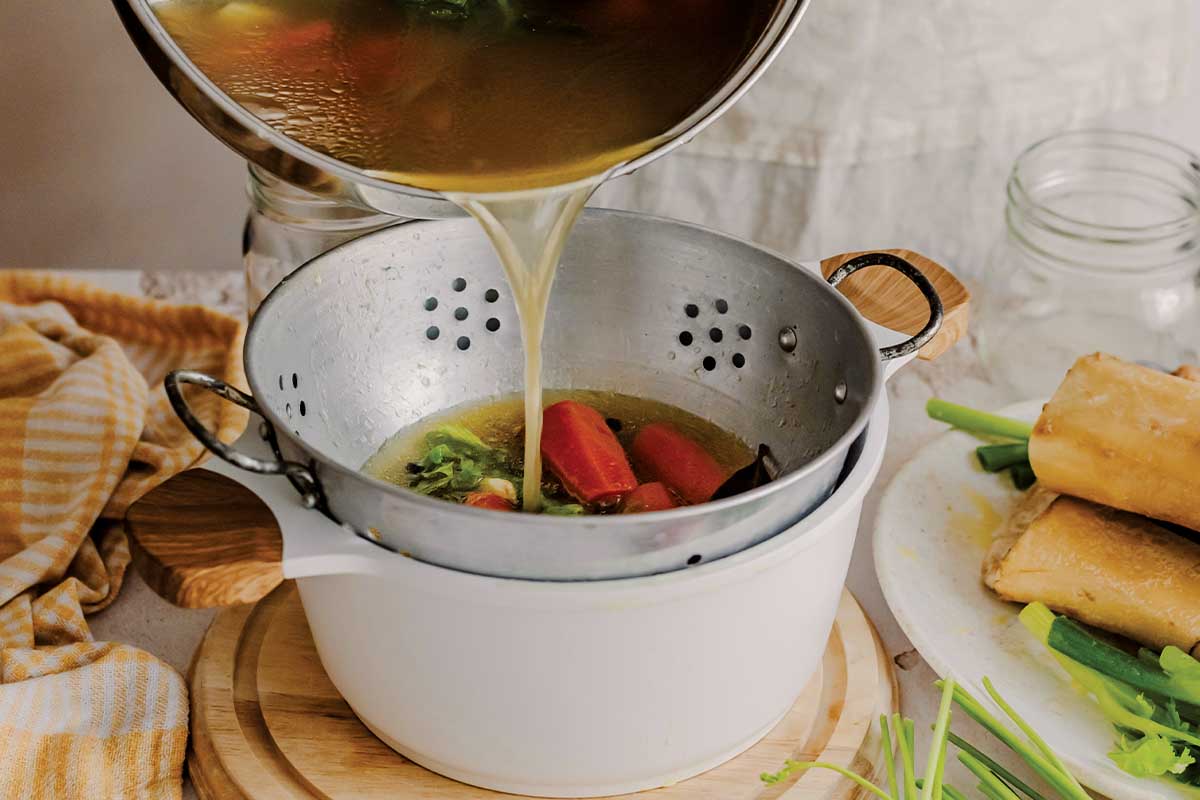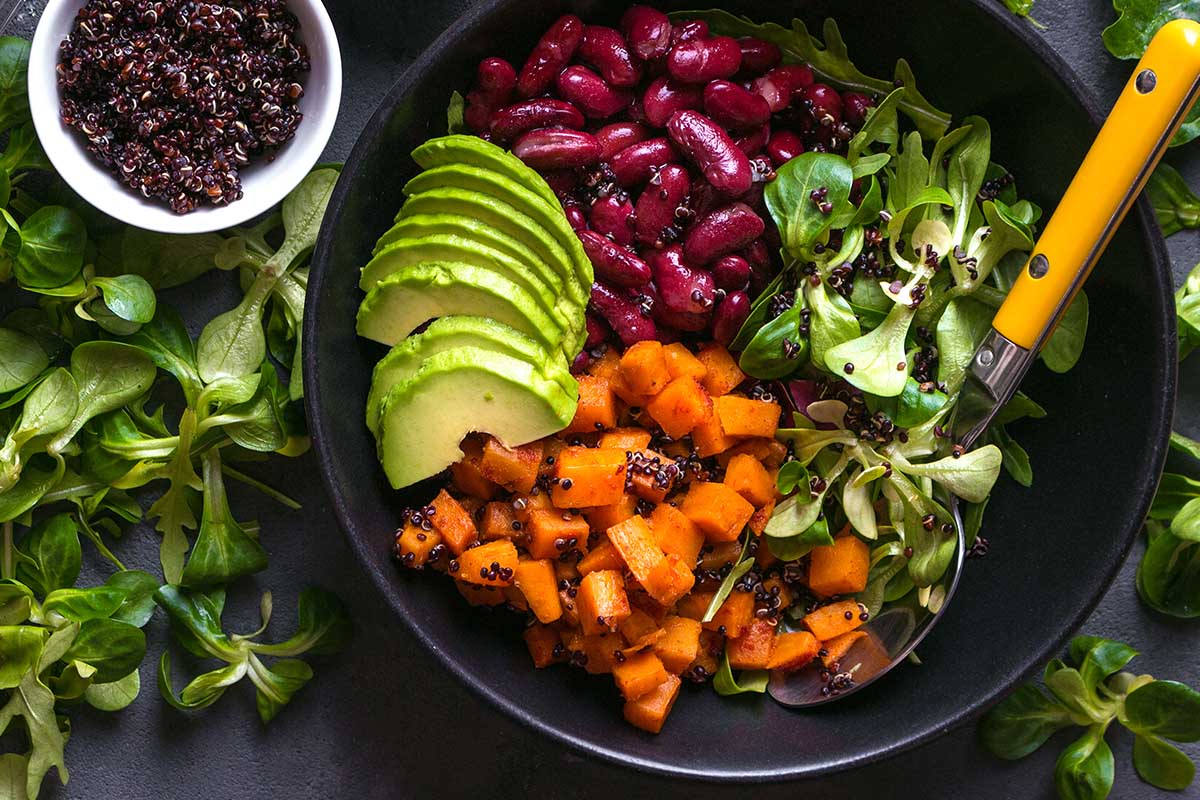Advertisement
Fortify Your Immune System Naturally
Simple strategies to fortify your defense system and thrive this cold and flu season
Fact-Checked
This article has been written and fact-checked by experts in the field.

When fall arrives, the air becomes brisk and fills with the familiar aroma of freshly sharpened pencils, ready for the new school year. But that’s not all that’s in the air: harmful germs are also lurking, poised and ready to strike.
Luckily, there are plenty of simple ways to support immunity and keep us feeling strong in the face of the viral onslaught.
“If you think of your body as a kingdom, … train your soldiers so when … enemies [are] at the gates, you’re able to fend them off,” says Dr. Kamala-Devi Sivasankaran, a naturopathic doctor in Toronto.
Advertisement
Illnesses to beware of this fall and winter
- RSV, a respiratory virus, usually causes cold-like symptoms like runny nose, sneezing, and wheezing
- Flu, characterized by a stuffy nose, sore throat, coughing, body aches, and fever
- Common cold, with many of the same symptoms as flu, minus body aches and fever
- COVID-19 exhibits flu-like symptoms, with extreme cases causing shortness of breath
Advertisement
Who’s most vulnerable?
Children are more susceptible to catching viruses because of their underdeveloped immune systems, as are people over the age of 65, pregnant women, people who smoke, and anyone with a weakened immune system due to chronic illness.
What to do when you have more than one virus (yes, this happens!)
People who catch more than one virus at a time may experience more severe symptoms like unrelenting fever or shortness of breath. In this case, it’s recommended to see a doctor to plan the best course of action.
Advertisement
What to eat for immune health
Because the immune system and the gut are intrinsically linked, “some of the foundational foods to support the immune system are focused on the gut,” says Brittany Duffy, a registered holistic nutritionist.
The best ways to shore up defenses against viruses is to eat nutrient-dense macronutrients—carbs, proteins, and fats—and to stay away from simple carbs, sugars, and processed foods which can cause a spike in blood sugar and trigger a stress response.
Advertisement
Antioxidants
Try to eat a “rainbow” of foods, says Sivasankaran, meaning brightly colored fruits and vegetables high in antioxidants, which offer antiaging and anti-inflammatory benefits that play an important role in preventing many chronic diseases. These include berries, leafy green vegetables, carrots, and squash.
Advertisement
Healthy fats
In addition to wholesome fruits and vegetables, include healthy fats such as good quality extra-virgin olive oil, coconut oil, avocado, and nuts as these can help with inflammation and cellular responses.
Advertisement
Fermented foods
Foods with live bacteria culture like kefir, sauerkraut, kimchi, and yogurt are full of probiotics which provide support to the immune system by promoting healthy bacteria in the gut.
Advertisement
Herbal teas and soups
Along with antioxidant-rich raw honey, soups, and bone broth, herbal teas can be very nourishing and soothing this time of year, says Duffy. When making soups, try adding plenty of garlic and warming spices like ginger, cinnamon, and turmeric for their antioxidant and antimicrobial properties.
Does cold weather make you sick?
Well, not directly, but a 2022 study found that the nasal cell defense system is weaker when exposed to cold temperatures. This, coupled with the tendency to cozy-up indoors where harmful germs and bacteria easily spread from one person to the next, makes fall and winter prime time for viruses.
Advertisement
Supplements for immune support
Although it’s better to get important nutrients from the foods we eat because they’re in a form that’s easier for the body to absorb, “it’s hard to be perfect” when it comes to eating healthy, says Duffy. This is where taking supplements can offer a convenient alternative.
Advertisement
Echinacea
Containing antiviral properties that may help reduce the chances of getting sick by helping stop the spread of some types of viruses and germs, echinacea also has antioxidants and anti-inflammatory properties that can help relieve symptoms.
Advertisement
N-acetylcysteine (NAC)
Found in foods in the allium family, such as onions, NAC is converted in the body to the amino acid cysteine, which metabolizes to the antioxidant glutathione. Taking NAC may help with the severity of symptoms by thinning mucus, acting as an anti-inflammatory, and replenishing the body’s glutathione.
Zinc for colds, flu, and more
Zinc is essential to the immune system because it supports the development of immune cells and antibodies, but that’s not all it does. It’s also a key player in DNA production, healing damaged tissue, and creating proteins, and it’s even involved in the sense of taste and smell. Zinc is found in most sources of protein including seafoods, chicken, dairy, eggs, nuts, and legumes.
Advertisement
Get active to activate immunity
During exercise, our immune cells circulate more rapidly, which may help detect and respond to illnesses earlier. Activity can also help flush bacteria out of the lungs and airways. More reasons to exercise? Reduced stress; increased longevity; and improved brain, heart health, and overall strength.
Advertisement
Prioritize sleep
Those who consistently get less than seven hours of sleep a day are up to three times more likely to catch a common cold than those who generally sleep eight or more hours. This is because during sleep, our bodies build up defenses; when we don’t sleep enough, we lack the antibodies needed to fight infection.
If you’re having trouble sleeping, try creating a sleep ritual, like journaling or taking a warm bath, avoiding screens and large meals before bedtime, or cutting out caffeine.
Advertisement
De-stress
Stress stimulates a fight-or-flight response in the body; when this happens, our white blood cells are weakened, and we become more vulnerable to infection.
“[When] you’re more connected inwardly, you can become more conscious of the triggers around you,” says Duffy. Whether it’s daily yoga or a quiet cup of tea, “little self-care rituals can make a big difference for supporting the mind and body.”
Supplements for immune support
| Supplement | Benefits |
|---|---|
| Echinacea | May help reduce chances of getting sick by helping to stop the spread of some types of viruses and germs |
| Elderberry | May help cold and flu symptoms resolve faster by reducing inflammation and strengthening the immune system |
| Ginseng | May help the body fight off infection by reducing inflammation |
| Garlic | May help support immunity and fight infections with its antibacterial properties |
| Oil of Oregano | Has antibacterial, antimicrobial, and anti-inflammatory properties; may help kill certain cold and flu viruses |
| Zinc | May help shorten the duration of the common cold |
| Medicinal Mushrooms | Rich in antioxidants and have anti-inflammatory and antimicrobial properties |
| NAC | Replenishes the body’s glutathione and acts as an anti-inflammatory |
| Vitamin C | May help reduce the duration of common cold symptoms by enhancing antibody function |
| Vitamin D | May help fight off infections by regulating immune cell activity |
| Selenium | May help the body fight infection by reducing inflammation and boosting white blood cells |
| Probiotics | May reduce occurrence of colds and flu; may also help reduce the duration of symptoms |
| Bee Propolis | Helps reduce the duration of cold and flu symptoms with its antioxidant, antiviral, and anti-inflammatory properties |
This article was originally published in the September 2024 issue of alive magazine.





